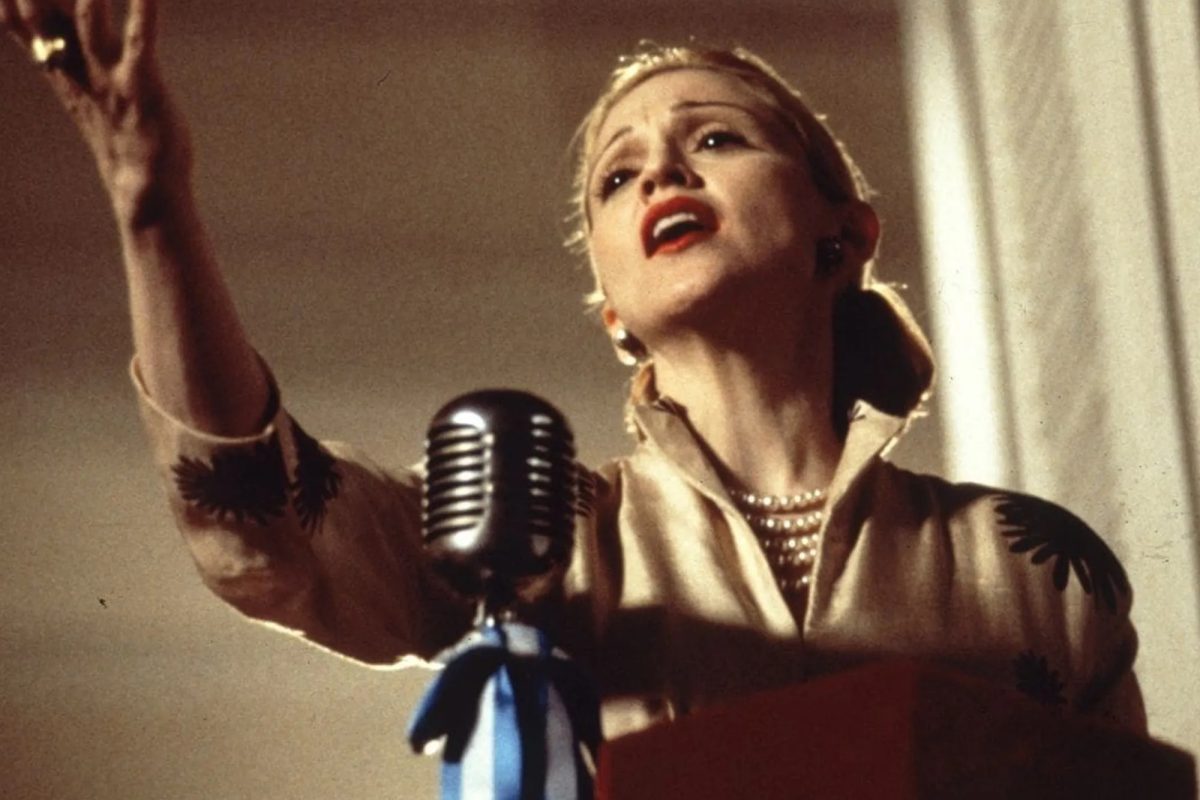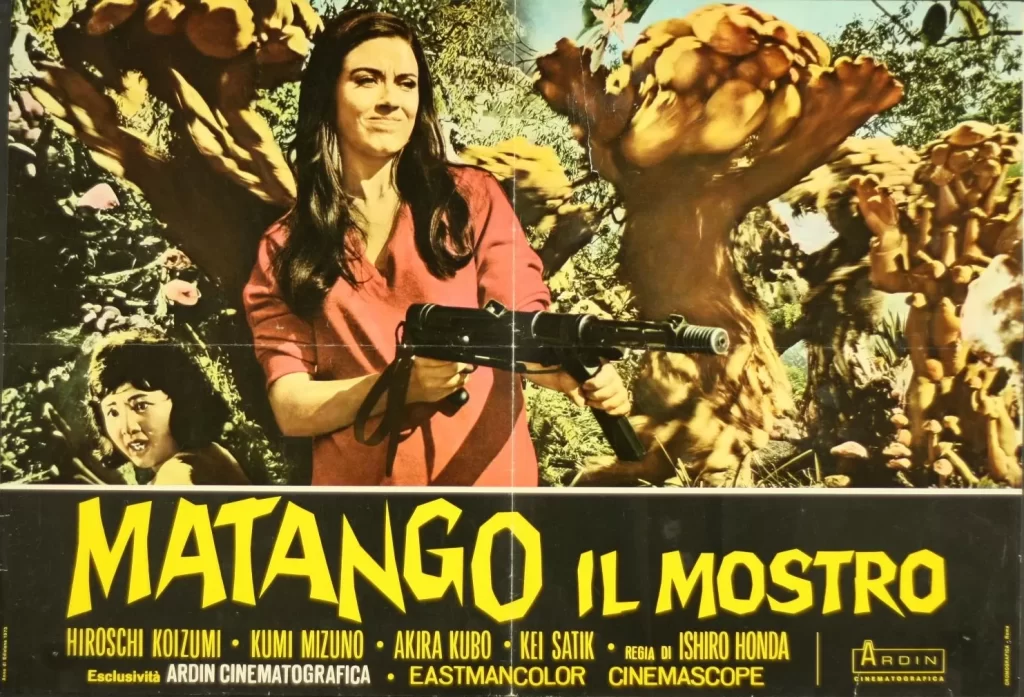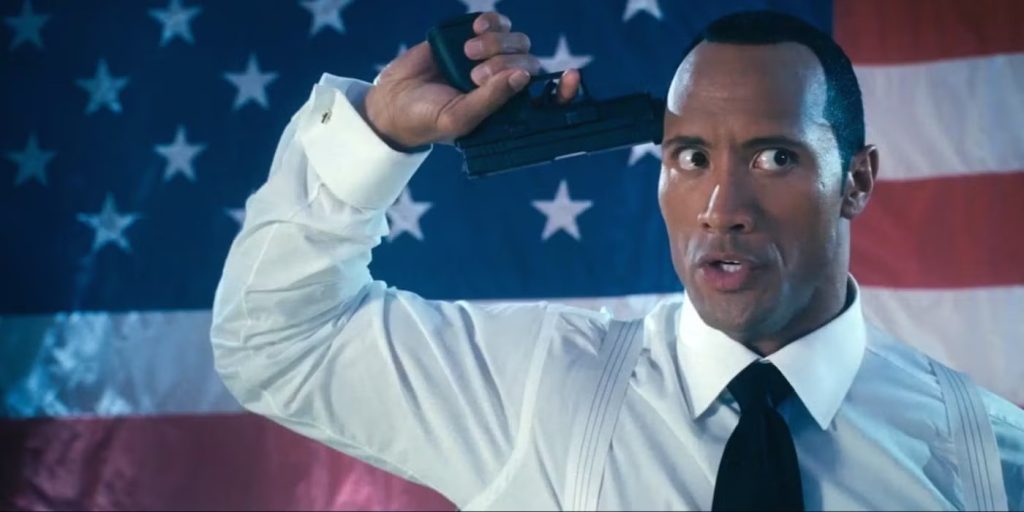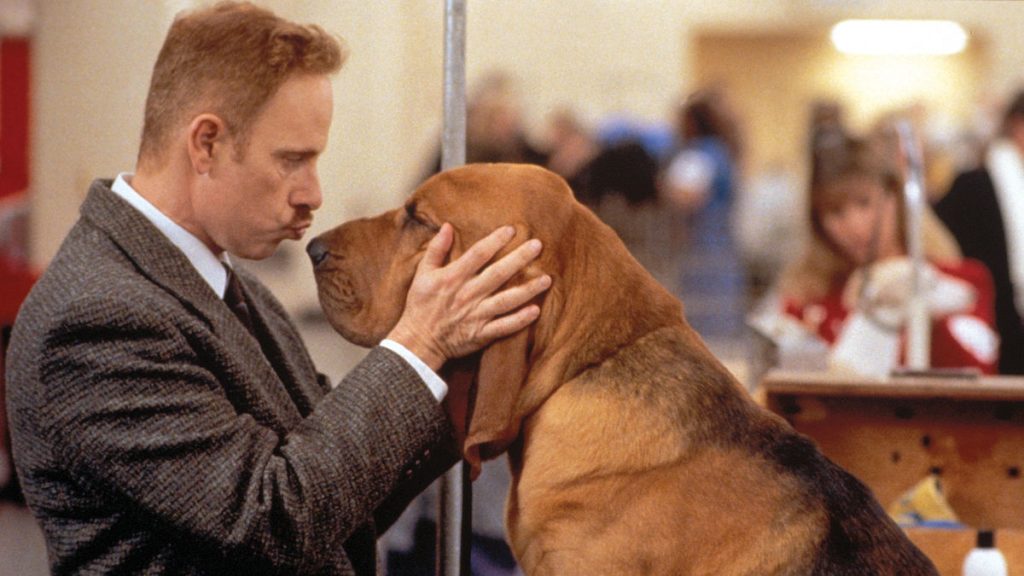Many things have been said about Madonna, but she’s never been accused of being a proficient actress. Despite being the popstar of her generation and a genre-defying icon of stardom, her dreams of Hollywood power never fully came to be. For every success, like Desperately Seeking Susan or Dick Tracy, there were a few forgettable flops (Bloodhounds of Broadway, Who’s That Girl?) and more full-on catastrophes (Swept Away, Shanghai Surprise.) Her astonishing magnetism as a musical performer just didn’t seem to translate to celluloid, although it didn’t help that the roles she was often given were thinly-drawn or straight-up mockeries of her much-dissected persona. For one shining moment, however, Madonna accomplished her movie-star dream and came perilously close to landing an Oscar nomination. It took a grand musical about a divisive historical diva and a meta examination of the Madonna allure to make it happen. That and some Andrew Lloyd Webber tunes.
Evita, the breakout Broadway show for Lloyd Webber and lyricist Tim Rice, was always sold based on its leading lady. The original West End production mounted an aggressive hunt for a new leading lady to play the part of Eva Perón, wife of Argentinian politician Juan Perón. The Broadway version turned Patti Lupone into one of American theater’s grandest divas. When it came time to make the film, directed by Alan Parker, it seemed that every major actress in Hollywood was clamoring for the role. Meryl Streep came close to claiming it. But it was Madonna who cinched it. Parker insisted that if Madonna was to be his Eva, she must understand that the film was “not a glorified Madonna video.” Yet the film undeniably bends backwards to accommodate the grandeur of its megastar leading lady, for better or worse.
Alan Parker’s Evita is a very odd film. It’s largely faithful to the stage show (but gives one of the best numbers to Madonna rather than its intended singer) and it’s often gorgeous to look at. The sheer scale of it is impressive, such as in the “Don’t Cry for Me Argentina” number where Madonna serenades 4,000 extras. It’s also politically a mess, with Parker’s camera being so enamored with the spectacle that any sense of the show’s (admittedly wonky) themes of class struggle are left drowning in it. This is a show that shouldn’t be rooted in realism but rather pure Brechtian artifice. Both Ken Russell and Oliver Stone were originally attached to the project, and you can imagine their versions being both more suitably frenetic and politically scathing.
Madonna is so unignorably a star that it overwhelms much of the story’s frequent disdain for Perón, who is positioned as a talentless social climber with friends in all the right places. This works best when Madonna gets to wield that charisma like a knife, the perfect politician’s wife who knows when to smile for what camera, but it’s less effective when the camera is so keen to bask in the magic of the queen of pop.

You can’t fault Evita for yielding to her might, though. This is by far and away Madonna’s best cinematic performance. Her natural charisma helps, as does the fact that the score was altered to suit her voice, but she’s also great at conveying that barely concealed sense of contempt that Perón has for most of the people around her, including those she’s meant to be helping. When Eva’s husband tells her she’s dying of cancer, Madonna is truly heart-wrenching in her reaction to the news that she’s not long for this world.
Parker may not have wanted to make a Madonna music video but it remains one, and that meta parallel between two women with radical cults of personality is what helps to lift it beyond erratic source material and a misguided aesthetic. Having someone who can’t hit the high notes but is still too compelling to ignore play a dictator’s hyper-ambitious wife is extremely on-the-nose, but Madonna seems to be the only person in the film who knows what she’s meant to be doing. The best scenes are when she gets to sing numbers that already sound like Madonna songs, such as “I’d Be Surprisingly Good for You”, wherein she seduces Juan with an offer of a mutually beneficial romance.
Evita hasn’t lingered long in people’s imaginations, but it was a box office success that gave Madonna the movie stardom she’d fought for. She won a Golden Globe and came close to an Oscar nomination. But she didn’t make many films after that (and they all suck). Perhaps there simply weren’t enough juicy roles out there that were best suited to a grand dame who needed the industry to accommodate her rather than the other way round. Madonna’s never stopped being a performer, as the ensuing 28 years of her music career can attest to. Through genre changes, new eras, and the increasing scourge of misogyny and ageism, she’s never ceded the spotlight for a second. If the camera won’t focus on her, she’ll just find a different stage. And isn’t that exactly what we want from Madonna? It’s that or another Swept Away…
“Evita” is streaming on Hoopla and is available for digital rental or purchase.



